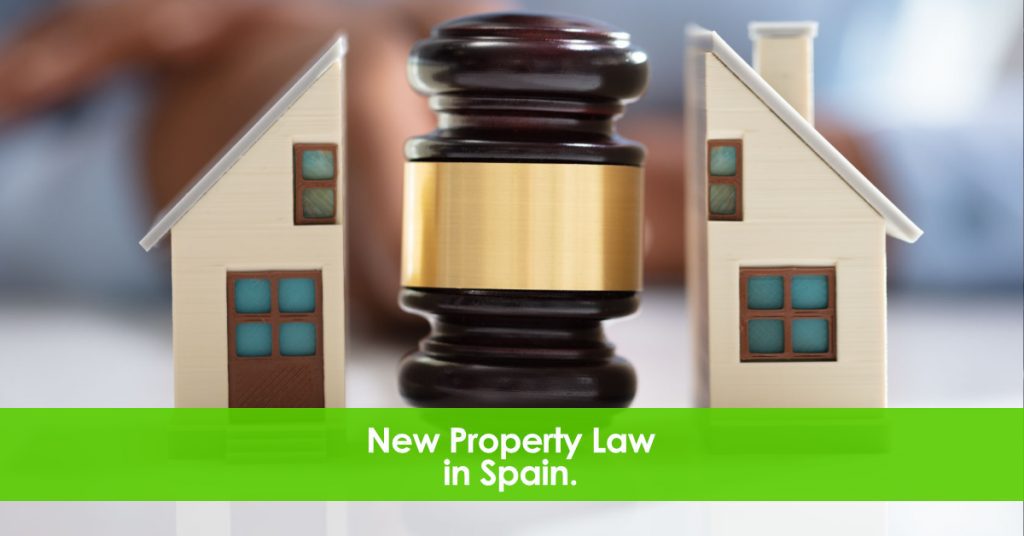On May 26th, 2023, a new Property Law (Law 12/2023) came into force in Spain. Although it is still early to know how it will affect the real estate market (buying and selling, rental agreements, etc.) in our next articles, we will analyse the main changes introduced by this law. And the fundamental aspects that must be considered from now on.
“Large landlords” or “Large Owners”.
As explained in previous articles, by means of Royal Decree Law 11/2020 and 15/2020, individuals or legal entities that own more than 10 urban properties (excluding garages and storage rooms) or a built surface area of more than 1,500 m2 were labelled as “large landlords”. The new housing law has taken a further step forward. From now on, those who have more than 5 residential properties in the same stressed area can also be considered as large landlords.
Stressed market areas. When, how, why?.
The new property law allows the different regions of Spain to classify as “stressed residential market areas” those areas in which one of the following situations occurs:
– The average mortgage or rental costs (plus basic expenses and supplies) exceeds 30% of the average income of these households.
– That the purchase or rental price has increased in the last 5 years, 3 points (or more) above the regional CPI.
The declaration of an area as “stressed” has major consequences for both landlords and tenants. In these areas, the tenant will be entitled to an extraordinary annual extension upon the termination of the contract. Furthermore, when the Landlord signs a contract with new tenants, the rental price will be limited to the rent fixed in the contract of the previous tenant (with exceptions). The Landlord will not be able to pass on to the new tenants any conditions or costs that were not included in the previous lease.
It remains unclear which Autonomous Communities will exercise this faculty and declare parts of their territory to be a stressed market area. However, several regions have already declared their intention not to make use of this possibility. The declaration of a stressed market zone will have an initial duration of 3 years and may be renewed annually.
Cap on Rent Increases until 2024.
During the year 2023, the rent update was limited to a maximum of 2%. With the new property law, it is confirmed that during the year 2024 the rent update will also be limited: it cannot be higher than 3%. It is expected that before 31 December 2024, a new index will be approved to replace the CPI (Consumer Price Index), which should come into force in 2025.
Property tax surcharges (IBI)
Until now, local councils were able to impose surcharges of up to 50% of the property tax on empty homes. The new property law opens the door to increase these surcharges to 100% when the property has not been occupied for more than 3 years (and the owner has 4 or more properties). In addition, when an owner has two or more empty properties in the same municipality, the Town Hall will be able to increase the surcharge up to 150%.
Conclusion.
The new property law has introduced numerous changes in the real estate market, that will affect the rental contracts in Spain. As we will explain in detail next week, in the second part of this article, this law will also affect eviction proceedings and sales and purchases. At White-Baos Lawyers we are experts in real estate law. Do not hesitate to contact us. We will study your case and offer you expert legal advice.
The information provided in this article is not intended to be legal advice, but merely conveys information relating to legal issues.
Carlos Baos (Lawyer)
White & Baos.
Tel: +34 966 426 185
E-mail: info@white-baos.com
White & Baos 2023 – All Rights Reserved.
